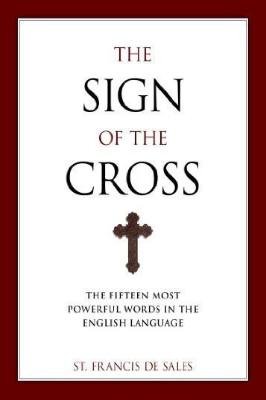
The Sign of the Cross
U.S. Delivery in 5-10 business days.

From the young St. Francis de Sales's heroic efforts to bring Calvinists back to the Faith comes this succinct, eloquent defense of the age-old Catholic practice of making the Sign of the Cross, which sixteenth-century Calvinists denounced as a Popish invention and many Protestants scorn even today.
Embodying the zeal of youth and the wisdom of age, this gentle jewel of Catholic apologetics traces the origins of the Sign of the Cross back to the Fathers of the Church, to the Apostles before them, and finally to our Lord Himself.
Along with St. Francis's other lucid explanations of our Catholic Faith and his undaunted love even for those who hated him, this modest book helped restore to their native Catholic faith tens of thousands of heretics who not long before were intent on killing him.
As they did for the Calvinists in St. Francis's day, so in our day these pages will bring you a better understanding and a renewed love the Sign of the Cross, that brief and lively exterior prayer by which, from time immemorial, God has been invoked by serious Christians before all of their endeavors.
Among the other things you'll learn here:
Outside the Creed itself, there are few topics to which the Fathers testify as universally and unanimously as the pious practice of making, frequently and well, the Sign of the Cross. With the help of these holy pages, the saints love for it will enkindle yours. Soon you ll be saying with St. Jerome, "With every work, with all of my comings and goings, may my hand make the Sign of the Cross!"